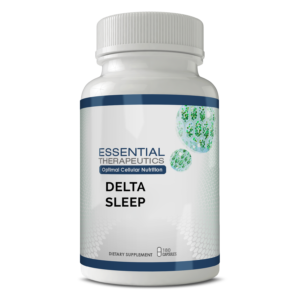SO Frustrating! Does This Happen to YOU?
(updated Dec 2020)
You can learn more about the sleep supplements I recommend by clicking the link below:
Good Sleep Hygiene Tips
1. I know this sounds silly, but wait until you’re sleepy before going to bed. Don’t force it! If you’re not sleepy at your regular bedtime, try to relax your body and distract your mind by reading, listening to music, taking a warm Epsom salt bath, or some other activity. A warm bath, light snack, or a few minutes of reading or listening to music can initiate good sleep. If you’re not asleep in 20 minutes, get out of bed. If you are not asleep after 20 minutes, leave your bedroom and find something else that will relax you enough to help make you sleepy (don’t go to the couch and watch TV or use any electrical device).
2. Try to wind down one hour before bed-avoid watching stimulating or emotionally upsetting programs (the evening news ). Dim the house lights and if needed use blue light blocking glasses (available on Amazon).
3. Avoid caffeine after lunch. And limit your intake to one or two servings of caffeine. Coffee and green tea, are fine. Sodas aren’t healthy and should be avoided.
4. Avoid alcohol of any type within six hours of your bedtime.
5. Do not smoke or ingest nicotine within two hours of your bedtime. Better yet, quit!
6. Exercise regularly (morning walks are ideal), but avoid strenuous exercise within six hours of your bedtime. Regular exercise is good, but do it earlier in the day.
7. Avoid eating heavy meals near bedtime. A light snack as long as not loaded with sugar, is fine.
8.Try to keep a regular sleep/wake schedule. Go to bed at the same time each night. Wake up at the same time each day, even on weekends and holidays. Don’t “sleep in” or take naps during the day. If you have to take a nap, try to keep it to less than one hour and avoid taking a nap after 3 p.m medications, chores, and other activities helps keep your body’s clock running smoothly. Make time each day to stretch, walk (even 10 minutes a day, preferably outside), and to have quit alone time (pray and or meditate daily for 10-15 minutes).
9. Do not read, eat, or watch TV, talk on the phone, surf the Web, do homework, or play board games in bed. The bedroom is for intimacy and sleep, nothing else. Disconnect computers, move work-stations or projects out of your bedroom! These devices emit blue light, which tricks your brain into thinking it’s still daytime. Normally, your brain starts secreting melatonin between 9 and 10 p.m., and these devices emit light that may stifle that process.
10. Sleep in complete darkness, or as close to it as possible. The slightest bit of light in your bedroom can disrupt your body’s clock and your pineal gland’s melatonin production. Use block out shades and wear a sleep mask to bed. Even the tiniest glow from your clock radio could be interfering with your sleep, so cover your radio up at night or get rid of it altogether. Move all electrical devices at least 3 feet away from your bed. You may want to cover your windows with drapes or blackout shades. If this isn’t possible, wear an eye mask.
11. Install a low-wattage yellow, orange, or red light bulb if you need a source of light for navigation at night. Light in these bandwidths does not shut down melatonin production in the way that white and blue bandwidth light does. Use blue-light-blocking glasses (available on Amazon).
12. Keep the temperature in your bedroom no higher than 70 degrees F. Many people keep their homes too warm (particularly their upstairs bedrooms). Studies show that between 60 to 68 degrees F is best.
13. Take a hot bath 90 to 120 minutes before bedtime. This increases your core body temperature, and when you get out of the bath it abruptly drops, signaling your body that you are ready to sleep. Add Epsom salts, a natural muscle relaxant. Epsom salts are available at most drugstores.
14. Get some sun in the morning, if possible. Your circadian system needs bright light to reset itself. Ten to 15 minutes of morning sunlight will send a strong message to your internal clock that day has arrived, making it less likely to be confused by weaker light signals during the night. Make sure you get BRIGHT sun exposure regularly.
Your pineal gland produces melatonin roughly in approximation to the contrast of bright sun exposure in the day and complete darkness at night. The more bright sunlight you get the more melatonin your pineal gland will produce that day!
More sunlight exposure is required as you age. If needed you can order a full spectrum “lightbox” from Amazon to mimic the early morning sun.
Also … If possible, avoid prescription sleeping pills, or use them cautiously.






Is magnesium Glycinate a good source of magnesium?
Yes, glycinate is ok… depends on the dosage of course. Also chelate, and citrate are good forms that we recommend.